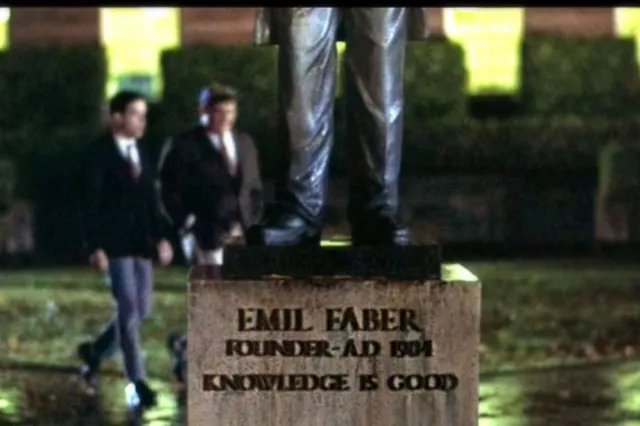As an undergraduate I majored in mathematics. As a counselor, I advise students who want to study anything other than math, anything. Accounting, anthropology, astronomy, all the way through the alphabet to zoology. I don’t emphasize my ongoing love of number theory and I certainly don’t suggest that all my students should sign up for Non-Euclidean Geometry and Convexity. “That’s why they make 28 flavors” as my grandmother used to point out. And every credible university has way more than 28 tasty majors from which to choose.
For my students who are passionate about learning Arabic, Chinese or French, I keep to myself that I struggle with languages, that after decades of trying to learn Spanish I am still befuddled by the proper response to “Hola, David, como esta?” For my students who are looking at nursing, the fact that I get queasy at the thought of blood does not come up in conversation.
What about my students who want to study education or sociology? I’m told that teachers and social workers earn less than chemical engineers do. What is my responsibility? How should I advise them? How much emphasis should I place on the likely discrepancy in future earnings?
Conversely, should I tell my students who want to study finance or earn an MBA that the world needs more social entrepreneurs, that they should instead devote themselves to philosophy or religion? Should I quote Balzac, behind every great fortune a great crime?
Speaking of church, if I am not a person of faith, can I advise students who want to attend a religious college? Can I help my students consider HBCUs although my great grandparents were from Eastern Europe? Can I recommend universities with strong water polo programs even though I swim like a stone?
I was never a fraternity kid. Should I advise families who have entrusted their child to my guidance to embrace or avoid Greek life thereby? What about students who confide that they want to emphasize the social aspects of college? In addition to reminding these kids about the deleterious effects of alcohol on the developing neocortex, should I tell them that I seldom drink?
As a heteronormative male, can I properly advise my LGBTQ or trans students? I certainly hope I can lend insight into campus culture, let students know where they will be accepted and safe, which schools that might be best avoided.
I also have a personal preference for small, liberal arts colleges with nurturing professors who offer extra study sessions. Yet my advisees frequently attend big, state schools with hundreds of students in first-year biology, psychology, and history classes.
When my students express concern about their rights being curtailed in some states, I show them colleges where abortion has not been outlawed. My own views on the controversial subject remain sequestered in my own head.
In short, I don’t force my students to be like me, think like me, or act like me. Polonius said, to thine own self be true. He might have added, be yourself; everyone else is taken.
To be fair there are some small aspects of an agenda I can’t avoid touching on: going to college is probably a good thing; most kids benefit. And I have been known to quote the Faber College motto. I do believe that there is something to be said for inquiry, that all things being equal insight is preferable to ignorance.
But the main point is that the transition process for an adolescent heading off to campus is not about me. The progression is about the young person finding their voice, gaining insight into the process, discovering who they are, where they need to be.
For parents, advice is even more difficult. How can I invest in this kid’s education when they can’t find the laundry basket with both hands and a compass, and their diet is limited to the carbohydrate food group and the foods-that-make-you-glow-in-the-dark-after-you’re-dead food group?
Like so many parenting issues, I would argue that this issue is comparable to the if you have to ask how much the pork chops are, you can’t afford them conversation. If you don’t think your kid is ready to go to college, something has gone wrong somewhere some time earlier. How you have the conversation and how you communicate your feeling is surely important. The fact that you are just now noticing that your child doesn’t have the requisite academic, social, and functional skills to survive is the bigger issue.
Should loving parents allow a student to attend a large, state supported, fraternity-laden university where the average first-year class has more students than would fit in a stadium when said supportive parent knows unequivocally that said child would have better odds of success in a small, private, liberal arts college where professors share their first names and smart phone numbers?
Would you rather be right, or would you rather be happy? is one way to look at the question. If you think I’m plunking down $80K for my kid to fail spectacularly both in and out of the classroom, you are a complete and utter doofus is another.
I would be pleased to answer unequivocally the simple question posed above but there are some number theory problems that I have to get back to and I want to keep practicing, “bien, gracias y tu?”






